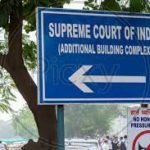This judgment addresses a civil appeal concerning a partition suit, where the core issue revolved around the validity of the marital relationship between the plaintiffs’ mother and the deceased Dasabovi. The Supreme Court reviewed the High Court’s decision, which had reversed the Trial Court’s dismissal of the partition suit.
The dispute involves the family of Thimmabovi Vellappa, who had two sons: Dasabovi @ Dasappa and Venkatappa. Dasabovi had two wives:
Bheemakka @ Sathyakka (First Wife): Mother of the plaintiffs, Venkatappa (Plaintiff No.1) and Siddamma (Plaintiff No.2).
Chowdamma (Second Wife): Defendant No.1, and mother of Balachandrappa (Defendant No.2).
The Dispute: The plaintiffs sought partition of joint family properties after the death of their father, Dasabovi. They alleged that the defendants (Chowdamma and Balachandrappa) denied their share, leading them to file O.S.No.102/2001 for partition. A key contention by the defendants was that the plaintiffs’ mother, Bheemakka, was not lawfully married to Dasabovi.
Lower Court Decisions:
The Trial Court dismissed the plaintiffs’ suit for partition.
The High Court allowed the appeal filed by the plaintiffs, setting aside the Trial Court’s judgment and consequently decreed the suit for partition in favor of the plaintiffs.
The defendants (Chowdamma and another) then filed the present appeal to the Supreme Court, challenging the High Court’s decision.
Law Involved
Indian Evidence Act, 1872:
Section 50 (Opinion on relationship, when relevant): This provision makes relevant the opinion expressed by the conduct of any person who has special means of knowledge on the subject of a relationship, especially for proof of marriage.
Adverse Inference (Section 114(g) Principle): The Court noted that a party’s failure to enter the witness box and offer testimony can lead to an adverse inference against them, particularly when the facts are within their personal knowledge.
Presumption of Marriage: There is a strong, though rebuttable, presumption in favor of wedlock when a man and woman have lived together as husband and wife for a significant period.
Burden of Proof: While the plaintiffs must establish their claim, the burden can shift to the defendants to rebut a valid marital relationship, especially when a strong presumption of marriage exists.
Evidentiary Value of Revenue Records: Revenue records are not considered conclusive proof of title or marital relationship.
Reasoning The Supreme Court upheld the High Court’s reasoning, emphasizing several key points:
Crucial Testimony of P.W.2 (Hanumanthappa): The testimony of P.W.2, a 75-year-old villager, was found to be of “evidentiary significance”. He stated that the plaintiffs’ mother, Bheemakka, and the deceased Dasabovi were husband and wife. The Court found P.W.2’s testimony to be “unimpeachable,” rooted in “personal knowledge and long-standing familiarity,” and reflecting “community-level proximity,” making it highly relevant under Section 50 of the Evidence Act. The argument that P.W.2 was not a blood relative was dismissed as irrelevant given his community standing and knowledge.
Presumption of Valid Marriage: The continuous cohabitation of Dasabovi and Bheemakka, supported by P.W.2’s evidence, created a strong presumption of a valid marital union. The defendants failed to provide any “contrary material” to dispute this.
Defendants’ Failure to Discharge Burden of Proof: The defendants merely denied the marriage without offering substantial oral or documentary evidence to counter the plaintiffs’ claim and the strong presumption of marriage. Their genealogical chart (Ex.P-7) was found to be incomplete and insufficient to discredit the plaintiffs’ claim or their own presented chart (Ex.D-2) .
Adverse Inference Against Defendant No.1: Defendant No.1 (Chowdamma) deliberately chose not to testify or enter the witness box, despite being a central figure in the dispute and having personal knowledge of the relationship. The Court held that this “conscious evasion” warranted drawing an adverse inference against her, further weakening the defendants’ case. Her claim of medical inability was deemed a “specious silence” .
Limited Value of Revenue Records: The Court reiterated that revenue records do not offer conclusive proof of marriage or title and could not override the evidence establishing the marital relationship.
Holding The Supreme Court dismissed the appeal filed by Chowdamma and another, finding it to be “devoid of merit” . This decision upheld the High Court’s judgment which had decreed the suit for partition in favor of the plaintiffs, Venkatappa and Siddamma. The Court affirmed that the plaintiffs had successfully discharged their burden of proving the marital relationship between their mother and Dasabovi, thereby establishing their right to a share in the family properties .
Chowdamma (Dead) By L.R V. Venkatappa (Dead)
Supreme Court: 2025 INSC 1038 (DoJ 25-08-2025)






